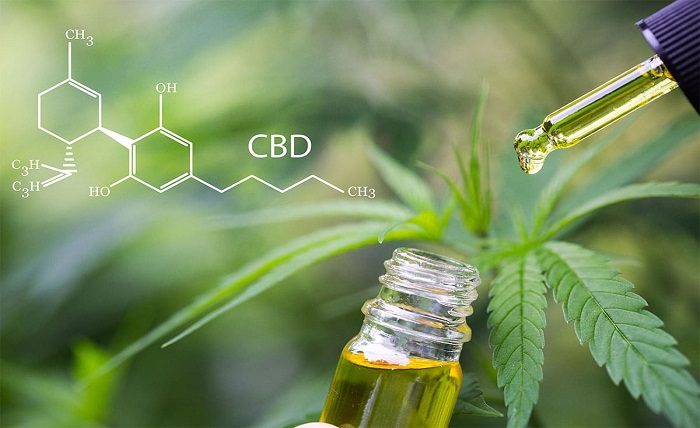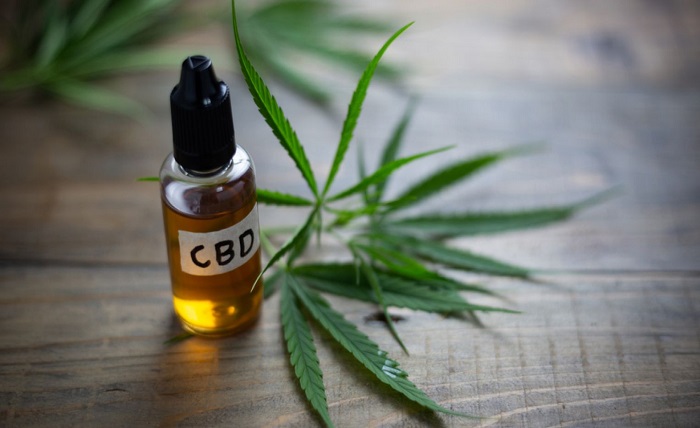The Benefits of CBD: Exploring the Potential of Cannabidiol

In recent years, CBD, short for cannabidiol, has gained significant attention for its potential therapeutic benefits. Derived from the cannabis plant, CBD is a non-intoxicating compound that has shown promise in various areas of health and wellness. This article aims to explore the numerous benefits of CBD and shed light on its potential uses. From its effects on anxiety and pain management to its role in promoting overall well-being, CBD has captured the interest of many individuals seeking natural remedies. In this article, we will delve into the fascinating world of CBD and discuss its wide-ranging applications.
Understanding CBD: A Brief Overview
CBD, one of the many cannabinoids found in the cannabis plant, has garnered attention due to its potential health benefits. Unlike its counterpart, THC (tetrahydrocannabinol), CBD does not produce psychoactive effects, making it an appealing option for those seeking relief without the “high” associated with cannabis use. CBD interacts with the body’s endocannabinoid system (ECS), a complex network of receptors responsible for maintaining balance and harmony within the body.
CBD and Anxiety Relief
Anxiety disorders affect millions of people worldwide, and finding effective treatment options is crucial. Research suggests that CBD may offer potential relief for anxiety symptoms. Studies have shown that CBD interacts with serotonin receptors in the brain, which play a vital role in mood regulation. By modulating serotonin levels, CBD may help alleviate feelings of anxiety and promote a sense of calmness.
The Role of CBD in Pain Management
Chronic pain is a prevalent condition that can significantly impact one’s quality of life. CBD has emerged as a potential natural alternative for pain management. The compound interacts with receptors in the ECS involved in pain perception, potentially reducing pain signals and inflammation. Whether it’s arthritis, migraines, or general discomfort, CBD shows promise in providing relief without the side effects often associated with traditional pain medications.
CBD and Sleep Disorders
Sleep plays a vital role in maintaining overall well-being, yet many individuals struggle with sleep disorders. CBD may offer a natural solution for those experiencing sleep disturbances. By promoting relaxation and reducing anxiety, CBD can help improve sleep quality and duration. Additionally, some studies suggest that CBD may regulate the sleep-wake cycle, leading to a more balanced and restful night’s sleep.
Promoting Skin Health with CBD
The skin is the body’s largest organ and is prone to various issues, including acne, inflammation, and aging. CBD’s anti-inflammatory and antioxidant properties make it a promising ingredient for skincare products. By reducing inflammation, CBD may help alleviate acne symptoms and promote clearer skin. Furthermore, its antioxidant effects can protect the skin against free radicals, potentially slowing down the aging process and improving overall skin health.
CBD and Epilepsy Treatment
Epilepsy is a neurological disorder characterized by recurrent seizures. Traditional treatment options may not be effective for everyone, leading individuals to explore alternative therapies like CBD. In fact, a CBD-based medication has gained approval for the treatment of specific forms of epilepsy. The anticonvulsant properties of CBD show promise in reducing the frequency and severity of seizures, providing hope for those affected by this challenging condition.
CBD for Stress Reduction
Stress is a common part of everyday life, but excessive or chronic stress can take a toll on our well-being. CBD may help alleviate stress by interacting with receptors in the ECS involved in regulating stress responses. By promoting relaxation and reducing anxiety, CBD offers a natural approach to stress reduction, allowing individuals to manage their daily challenges more effectively.

Managing Inflammation with CBD
Inflammation is the body’s natural response to injury or infection, but chronic inflammation can contribute to various health conditions. CBD’s anti-inflammatory properties have shown promise in managing inflammation and associated symptoms. By interacting with receptors in the immune system, CBD may help reduce inflammation, providing relief for conditions such as arthritis, inflammatory bowel disease, and multiple sclerosis.
CBD as a Potential Anti-Cancer Agent
The search for effective cancer treatments continues, and CBD has emerged as a potential player in this field. While research is still ongoing, some studies suggest that CBD may possess anti-cancer properties. It has demonstrated the ability to inhibit the growth of certain cancer cells and promote apoptosis (programmed cell death) in cancer cells, offering hope for the development of future cancer therapies.
Enhancing Athletic Performance with CBD
For athletes and fitness enthusiasts, optimizing performance and promoting recovery are essential. CBD has gained popularity in the sports community due to its potential benefits. It may aid in reducing exercise-induced inflammation, alleviating muscle soreness, and supporting overall recovery. Furthermore, CBD’s potential to reduce anxiety and improve sleep quality can contribute to better athletic performance.
CBD and Mental Health Disorders
Mental health conditions such as depression, post-traumatic stress disorder (PTSD), and schizophrenia affect millions of individuals worldwide. While CBD is not a cure-all, it has shown promise in alleviating symptoms associated with these disorders. CBD’s interaction with the ECS and its potential to regulate neurotransmitter levels may contribute to its positive effects on mental health. However, it’s crucial to consult with a healthcare professional before considering CBD as part of a treatment plan.
The Potential Side Effects of CBD
Like any substance, CBD may cause side effects, although they are generally mild and well-tolerated. Common side effects include fatigue, dry mouth, changes in appetite, and diarrhea. It’s essential to start with a low dosage and gradually increase it while monitoring how your body responds. As CBD can interact with certain medications, it’s advisable to consult with a healthcare professional before incorporating CBD into your routine.
CBD Dosage and Administration
Determining the appropriate CBD dosage can be challenging as it depends on various factors such as body weight, individual tolerance, and the desired effects. It’s advisable to start with a low dose and gradually increase it until the desired results are achieved. CBD can be taken orally, topically, or inhaled, with each method having its own benefits and considerations. Consulting with a healthcare professional can help determine the most suitable dosage and administration method for your specific needs.
CBD: Legal Considerations and Regulations
The legal status of CBD varies from country to country and even within different states or regions. While CBD derived from hemp with less than 0.3% THC is legal in many places, it’s crucial to stay informed about local regulations before purchasing or using CBD products. Ensuring that the CBD products you choose are third-party tested for quality and purity is essential for your safety and peace of mind.
Conclusion
CBD has emerged as a fascinating compound with vast potential in the field of health and wellness. From its role in anxiety relief and pain management to its effects on sleep, skin health, and various other conditions, CBD offers a natural alternative for those seeking alternative remedies. However, it’s important to approach CBD with caution, consult with healthcare professionals, and stay informed about legal considerations. As research continues to unfold, CBD may pave the way for innovative treatments and improved well-being.




